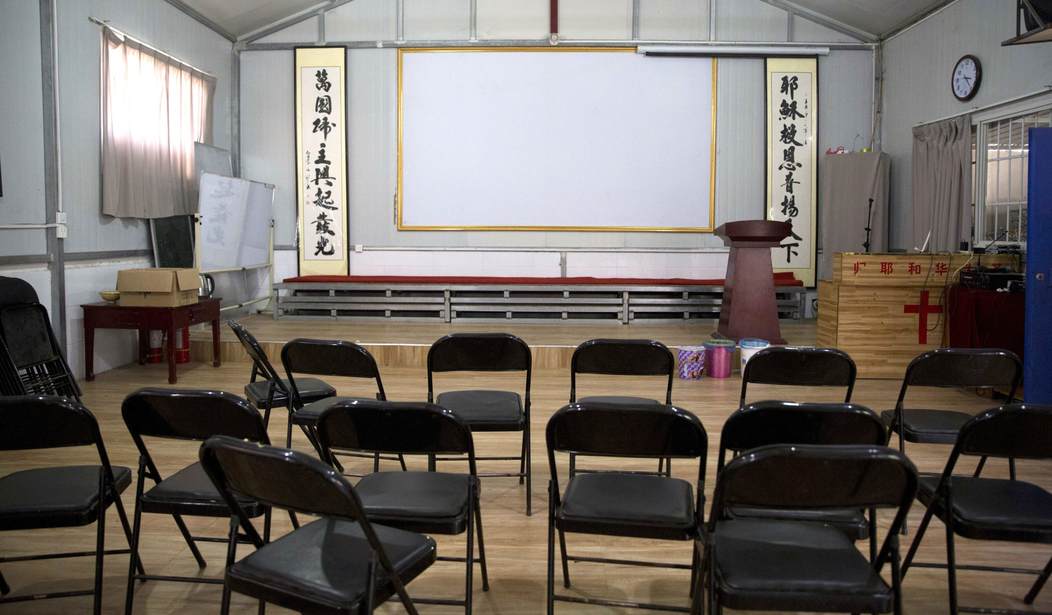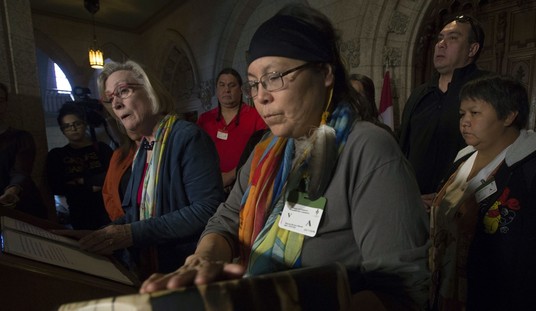A Congress-mandated report on the state of religious freedom around the world released by the State Department had some good news and some bad news.
The really bad news concerns the ability of the Chinese people to worship how they choose.
Multiple media and NGOs estimated that since April 2017, the government detained at least 800,000 and up to possibly more than 2 million Uighurs, ethnic Kazakhs, and members of other Muslim groups, mostly Chinese citizens, in specially built or converted detention facilities in Xinjiang and subjected them to forced disappearance, torture, physical abuse, and prolonged detention without trial because of their religion and ethnicity. There were reports of deaths among detainees. Authorities maintained extensive and invasive security and surveillance, particularly in Xinjiang, in part to gain information regarding individuals’ religious adherence and practices. The government continued to cite concerns over the “three evils” of “ethnic separatism, religious extremism, and violent terrorism” as grounds to enact and enforce restrictions on religious practices of Muslims in Xinjiang. Authorities in Xinjiang punished schoolchildren, university students, and their family members for praying. They barred youths from participating in religious activities, including fasting during Ramadan. The government sought the forcible repatriation of Uighur Muslims from foreign countries and detained some of those who returned.
It gets worse — much worse:
The government began enforcing revised regulations in February that govern the activities of religious groups and their members. Religious leaders and groups stated these regulations increased restrictions on their ability to practice their religions, including a new requirement for religious group members to seek approval to travel abroad and a prohibition on “accepting domination by external forces.” Christian church leaders stated the government increased monitoring even before the new regulations came into effect, causing many churches to cease their normal activities. Authorities continued to arrest Christians and enforce more limitations on their activities, including requiring Christian churches to install surveillance cameras to enable daily police monitoring, and compelling members of house churches and other Christians to sign documents renouncing their Christian faith and church membership. An ongoing campaign of church closings continued during the year, and authorities removed crosses and other Christian symbols from churches, with Henan Province a particular focus area of such activity. In September the Holy See reached a provisional agreement with the government that reportedly would resolve a decades-long dispute concerning the authority to appoint bishops.
It’s safe to say that China is the only industrialized country in the world that officially persecutes members of many religious denominations, including Christians, Muslims, and Buddhists. It will continue as long as the world stands by and lets it happen.
Secretary of State Pompeo did have some good news to report, although many of these nations took baby steps in the right direction.
“I’ll start with the good news: In Uzbekistan, much work still remains to be done, but for the first time in 13 years, it’s no longer designated as a Country of Particular Concern,” Pompeo said. “This past year, the government passed a religious freedom roadmap. Fifteen hundred religious prisoners have been freed, and 16,000 people that were blacklisted for their religious affiliations are now allowed to travel.”
“We look forward to seeing legal reforms to registration requirements, so more groups may worship freely, and so children may pray at mosques with their parents,” Pompeo said.
“In Pakistan, the supreme court acquitted Asia Bibi, a Catholic, of blasphemy, sparing her the death penalty after she spent nearly a decade in prison,” Pompeo said. “However, more than 40 others remain jailed for life, or face execution on that very same charge.”
“We continue to call for their release, and encourage the government to appoint an envoy to address the various religious freedom concerns,” Pompeo added.
Pompeo also cited Turkey and credited President Donald Trump’s efforts for the release of Pastor Andrew Brunson, who was jailed for his faith.
The bad news is that much of the world is still persecuting and even killing people for their faith, including in Iran, Russia, and Burma.
True religious freedom is a rarity in the world. Not surprisingly, freedom of worship closely tracks with other personal freedoms enjoyed by many in the West. The more repressive governments are in persecuting religious people, the more authoritarian they are.
Recognizing the courage and commitment of those who live under threat of their freedom or lives because of how they choose to worship god should be a year-round endeavor and not just once a year when this report is released.










Join the conversation as a VIP Member